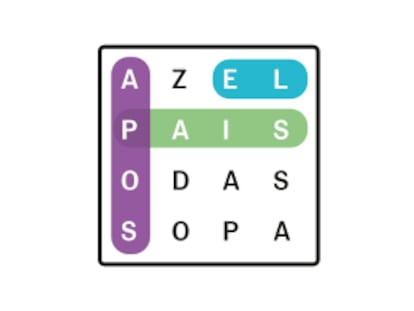Corrupción en Argentina
Cable de EE UU que apunta que la ley de amnistía del Gobierno argentino despierta sospechas
Esa fue la conclusión de la embajada norteamericana tras consultar con varias fuentes
| ID: | 197817 |
| Date: | 2009-03-19 16:13:00 |
| Origin: | 09BUENOSAIRES313 |
| Source: | Embassy Buenos Aires |
| Classification: | CONFIDENTIAL |
| Dunno: | 09BUENOSAIRES257 |
| Destination: | VZCZCXYZ0000 OO RUEHWEB DE RUEHBU #0313/01 0781613 ZNY CCCCC ZZH O 191613Z MAR 09 FM AMEMBASSY BUENOS AIRES TO RUEHC/SECSTATE WASHDC IMMEDIATE 3343 INFO RUEATRS/DEPT OF TREASURY WASHINGTON DC IMMEDIATE RUEAIIA/CIA WASHINGTON DC IMMEDIATE RUEABND/DEA HQS WASHINGTON DC IMMEDIATE RHMFISS/DEPT OF HOMELAND SECURITY WASHINGTON DC IMMEDIATE RHMFISS/DEPT OF JUSTICE WASHINGTON DC IMMEDIATE |
C O N F I D E N T I A L BUENOS AIRES 000313 SIPDIS E.O. 12958: DECL: 03/18/2019 TAGS: KTFN, EFIN, PTER, PREL, PARM, MNUC, KNNP, AR SUBJECT: ARGENTINE TAX AMNESTY LAW LOOKS ACCEPTABLE ON PAPER, BUT CONCERNS REMAIN ABOUT ENFORCEMENT REF: BUENOS AIRES 257 Classified By: Ambassador E. Anthony Wayne for Reasons 1.4 (b,d) ------- Summary ------- 1. (C) The local controversy over Argentina's new tax amnesty law continues, in part due to the uproar that followed mention of the law in the International Narcotics Control Strategy Report (INCSR) on money laundering in Argentina (reported Reftel). The GoA dismisses concerns that the new law will facilitate money laundering, and made assurances during the late February Financial Action Task Force (FATF) plenary that Argentina will continue to comply with its international commitments with regards to anti-money laundering and counter terrorism finance (AML/CFT). FATF's President recently told Argentine press that "It's not enough to have a good law, you have to apply it," and noted that FATF will review the GoA's implementation of the law during its evaluation of Argentina this fall. Local bankers say the law has damaged the reputation of Argentina's financial system and they do not expect it to succeed in repatriating significant funds. Legal experts say the law, its implementing regulations, and Argentina's overall AML/CFT regime together contain sufficient safeguards to prevent money laundering. However, these experts worry that the GoA does not have the legal and regulatory capacity to enforce the controls. They also warn that the tax amnesty law could be used to legitimize local cash holdings derived from corruption and gambling operations. The area of concern, therefore, as with the overall Argentine AML/CFT legal and regulatory regime, is lack of enforcement -- an issue FATF should focus on during its evaluation. End Summary. --------------------------------------------- ------- Background: Tax Amnesty and Capital Repatriation Law --------------------------------------------- ------- 2. (SBU) In November 2008, Argentina's President sent a bill to Congress to encourage the repatriation of funds held by Argentine individuals and companies abroad. The Argentine Congress approved the bill December 18; it entered into force December 24. Under this law, companies or individuals have a six-month window, beginning March 1, 2009, to declare funds held abroad (or outside the financial system) to the local tax authority (AFIP). Those choosing to keep these funds abroad will be charged an 8% tax rate. Repatriated funds will face a 6% tax if the funds are deposited in local banks, 3% if invested in GoA bonds, or 1% if invested in real estate, infrastructure, or agricultural or industrial ventures. 3. (SBU) The law, which aims to entice the return of billions held outside the formal financial system (both offshore and in-country and roughly estimated at about $130 billion), generated controversy and bad press for the GoA from the moment the President introduced it. Many local experts and opposition political figures allege the law will facilitate money laundering. Their concern stems from the fact that the law prohibits AFIP from inquiring about the source of the repatriated funds. As a reflection of similarly-held international concerns, the President of the Financial Action Task Force (FATF), Antonio Rodrigues, sent a letter to the GoA in late 2008 asking for more details. The letter was subsequently leaked, embarrassing the GoA and further exacerbating local debate. 4. (SBU) In response to critics, the GoA made assurances that the law's implementing regulations would adhere to FATF AML/CFT standards. The GoA published the implementing regulations February 2, 2009. These regulations require local financial institutions to comply with existing rules and regulations of the Argentine Central Bank (BCRA) and Argentina's Financial Intelligence Unit (FIU). They also include a requirement that transfers from abroad originate in countries that comply with international AML/CFT standards. -------------------------------------- Conflict Between Central Bank and AFIP -------------------------------------- 5. (SBU) A surprising recent development is the dispute that has surfaced between AFIP and the BCRA over the application of the Argentina's Foreign Exchange Penal Code (Law 19359). The law holds the BCRA responsible for investigating offenses such as unauthorized trades and making false statements on FX transactions. This law (and associated BCRA regulations) require that financial entities verify that all current transactions meet Argentine laws or that all past transactions also complied with Argentine law. 6. (SBU) The consequence of this law is that an individual who sent money out of the country in the past via illegal means can now bring that money back under the new tax amnesty and avoid prosecution for tax evasion, but may still be prosecuted for violating the FX Penal Code. AFIP officials have reportedly called on the BCRA to refrain from applying the FX Penal Code, since it would undermine the purpose of the tax amnesty (scaring both banks and those looking to repatriate funds), but the BCRA has said that changing the law requires Congressional action. 7. (SBU) The FX Penal Code was not the only law the GoA neglected to consider when drafting the tax amnesty. GoA officials also forgot that most financial inflows are subject to capital controls, requiring the unremunerated deposit of 30% of the total amount into a local bank account for one year. To correct this oversight, the Economy Ministry recently announced the suspension of capital controls on incoming financial flows through the end of the six-month amnesty period.) --------------------------------------------- - FATF President Emphasizes Need for Enforcement --------------------------------------------- - 8. (SBU) The GoA's Justice Minister personally attended the February 24-26 FATF plenary in Paris to defend the law and its implementing regulations. He assured FATF members that Argentina will continue to adhere to international AML/CFT standards. The GoA later reported to Argentine press that FATF members -- including the U.S. -- had accepted the Minister's arguments without comment or criticism. In a March 1 interview with Argentine daily La Nacion, FATF President Rodrigues said the FATF evaluation team visiting Argentina later this year will verify that the GoA has put in practice its promises to ensure the tax amnesty law does not facilitate money laundering. "It's not enough to have a good law," he said, "You have to apply it correctly." "If someone taking advantage of the law only failed to pay taxes, but the money comes from a licit source," he said, "FATF won't say anything...on the condition that the owners of those funds demonstrate to the financial authorities the origin." Rodrigues also noted that if a country fails to comply with FATF recommendations, it enters into a process of "enhanced follow-up," so this is the risk facing Argentina. ----------------------- The View from the Banks ----------------------- 9. (C) Post's financial sector contacts say the tax amnesty is bad news for banks, bringing few benefits at a high cost. They do not expect large inflows at a time when most people are trying to find ways to buy dollars or pull dollar deposits out of the system (and away from the reach of the GoA). They also say the damage to the Argentine banking system's reputation became apparent immediately following the President's introduction of the initiative. Foreign banks immediately became more suspicious of Argentine financial transactions and local banks now experience greater difficulties in their correspondent banking relationships. Finally, several bankers have argued to Econoffs that they will treat large inward transfers -- especially from unknown clients -- with extreme caution. A financial reporter for local newspaper La Nacion agrees and recently told EconOff that local bankers are especially concerned about the possible repercussions they may face under the FX Penal Code. ----------------------------- The Private Legal Perspective ----------------------------- 10. (C) Post consulted two legal experts with extensive private sector and government experience in the area of AML/CFT. Neither likes the law or believes it will fulfill the purpose of attracting significant funds. However, both agree the implementing regulations and existing BCRA and FIU regulations appear to establish sufficient controls, at least on paper, to make it difficult to use the law to launder dirty money coming from overseas through the financial system. In particular, both think the Foreign Exchange Penal Code, mentioned above, will heighten bank oversight of questionable transactions and discourage such transfers. However, both are concerned about GoA commitment to enforcing the safeguards. 11. (C) One of the lawyers, who has advised banks and exchange houses for decades, argues the law does not absolve any party taking advantage of the tax amnesty from declaring the source of the funds. Technically, he said, "the law only allows the cleaning of money that evaded taxes, not illicit earnings." While AFIP may be barred from inquiring as to the source, he noted, any financial institution accepting the funds is required under other Argentine laws and central bank regulations to make inquiries and report suspicious transactions to the FIU. Therefore, he believes the law is technically as sound as similar laws in other countries ("all of which, in practice, facilitate money laundering," he says). 12. (C) The other lawyer, who previously filled a high-level AML/CFT post in the GoA, is more pessimistic. While he grudgingly agrees the law has adequate safeguards on paper, he argues that it does not matter given the woeful state of enforcement of Argentine AML statutes and regulations. The FIU, he argues, is a dysfunctional organization not capable of analyzing or investigating suspicious activity reports, and the Special Public Prosecutors Unit that pursues money laundering cases is poorly funded and staffed. Furthermore, he argues that local banks facing the current global financial crunch are desperate for funds and the incentive, therefore, is to take whatever deposits they can get. Finally, he believes the high-risk area is funds flowing into real estate investments and infrastructure projects. While the notary publics that authorize the paperwork for such deals are subject to the same laws as financial institutions, they are not overseen by the BCRA and there is more opportunity for corruption. 13. (C) Both lawyers fully agree that the question to ask is why the GoA pushed so hard to pass a law that few expect will result in large-scale repatriated funds from abroad (as one said, "at a time when most Argentines are desperate to get dollars out of the country"). Both share the opinion that the real purpose of the law is to allow government officials and their cronies in the private sector to legitimize the cash proceeds of payoffs (bribes and other forms of official corruption) and shady business operations (i.e., gambling). ----------------------- German Embassy Comments ----------------------- 14. (C) Econoff also spoke with the xxxxxxxxxxxxxx, who has worked closely with the Argentine FIU for years on AML/CFT issues. Based on Germany's experience with a similar law, xxxxxxxxxxxxxx believes a tax amnesty in itself is not a bad thing. xxxxxxxxxxxxxx also notes that "there is no rule saying the tax revenue administration has to ask where the money comes from." That is the solution most countries, including Germany, choose, "because it's the most effective way to control incoming financial transactions." However, xxxxxxxxxxxxxx notes that a government may instead choose to rely on the ordinary control points, such as banks, FIUs, and Central Banks ("this is what Belgium did with their law.") However, when you choose this route, as the GoA has, "you have to make sure your control points have the capacity to deal with the increased cash inflow." 15. (C) This is where the concerns lie with Argentina. Whereas the GoA recently announced that it would triple the budget of the FIU, the money will not come through in time for the FIU to increase its support for banks dealing with inflows during the March to September time frame established by the law. xxxxxxxxxxxxxx adds that most of those who have been working on AML/CFT issues in Argentina believe that if the law succeeds in enticing back sizable capital flows, "banks will be overwhelmed by the quantity of cash flow and will report everything to the FIU to be on the safe side. The FIU does not have the capacity to investigate all incoming cases the way they should, so it will pass everything unanalyzed to Raul Plee (lead AML/CFT Prosecutor). Plee and his three prosecutors will be buried under the multitude of cases" and will have difficulty determining which cases to investigate. 16. (C) xxxxxxxxxxxxxx concurs with the majority opinion that few will take advantage of the law to legalize money. Nevertheless, xxxxxxxxxxxxxx told GoA National AML/CFT Coordinator Alejandro Strega: "if you want to convince people in Paris (at the FATF meeting), you have to show that you apply safety measures and controls outside AFIP. And you have to counter the suspicion most countries have that your government needs cash and tries to get money out of any source they can get no matter how many national or international rules they have to breach." ----------------------------------- Post Comment on the Tax Amnesty Law ----------------------------------- 17. (C) Senior GoA officials have informed Ambassador and other Emboffs that the GoA will ensure that all Argentine AML/CFT legislation, including the tax amnesty law, abides by the GoA's international commitments. Nevertheless, as noted above, Post has not found any non-government individual who thinks the impact of the GoA's tax amnesty law will be good for the country or will be successful in attracting significant funds back into the system. Our contacts also worry about that the law poses a high risk of facilitating the laundering of funds held locally in cash and derived from questionable means, i.e., corruption and gambling. 18. (C) On paper, however, the law, along with the implementing regulations and various other laws and BCRA and FIU regulations, appears to have sufficient safeguards in place to preclude abuse for purposes of laundering dirty money. The issue then, as with all GoA legislation and regulation related to AML/CFT, is enforcement and implementation. The Argentina INCSR II report on money laundering repeatedly highlights the GoA and Argentine judicial system's shortcomings on this point. In fact, the INCSR report notes that there have been no convictions for money laundering in Argentina since AML legislation entered into force in 2000. This lack of enforcement, therefore (and not just related to the tax amnesty law), is an area that FATF should focus on during its mutual evaluation of Argentina scheduled for later this year. End Comment. WAYNE |
Traduce este documento »
Traducción automática. Puede que el texto traducido no sea fiel al original
Únete a EL PAÍS para seguir toda la actualidad y leer sin límites.
Suscríbete_







































































